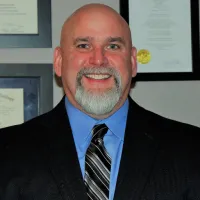The Block Talk Blog

Navigating Relationships with Justice-Involved Family Members in the Field of Corrections, Probation, or Parole: A Guide to Self-Care
From Cadet to Commissioner, you belong here.
Working in the fields of corrections, probation, or parole can be both rewarding and challenging. It involves managing complex and sensitive relationships, particularly when you have justice-involved family members. These situations can be emotionally taxing, but with the right approach and self-care strategies, you can maintain your professional integrity while supporting your loved ones.
In this blog post, we'll explore effective ways to navigate these relationships and prioritize self-care.
Establish Boundaries
Maintaining clear boundaries between your personal and professional life is crucial. While it's natural to want to help your justice-involved family member, it's essential to avoid compromising your job's integrity or ethics. Clearly communicate your limitations and ensure that your role as a corrections, probation, or parole officer is separate from your role as a family member.
Educate Yourself
Take the time to educate yourself about the legal processes and resources available for your family member. This knowledge can empower you to provide accurate information and support them effectively. Additionally, it helps in setting realistic expectations and goals.
Active Listening and Empathy
When your family member is involved in the justice system, they might be going through various emotional challenges. Practice active listening and show empathy without passing judgment. Let them express their thoughts and feelings, providing a safe space for them to open up.
Encourage Rehabilitation
Support your family member's efforts towards rehabilitation and reintegration into society. Offer encouragement for participation in rehabilitative programs or educational opportunities. Your belief in their potential can be a powerful motivator.
Seek Professional Advice
Consider seeking professional advice or counseling for both you and your justice-involved family member. Family therapy or counseling can be beneficial in addressing conflicts, understanding each other's perspectives, and improving communication.
Self-Care Strategies:
Self-Reflection
Regularly reflect on your emotions, reactions, and stress levels related to your dual roles. Journaling or meditation can be helpful tools for self-reflection.
Set Aside "Me Time"
Allocate time for yourself regularly to recharge. Engage in activities that bring you joy, whether it's a hobby, exercise, or spending time with friends and other family members.
Lean on Your Support System
Reach out to colleagues, friends, and mentors who can provide emotional support and guidance. They can share their experiences and offer valuable insights.
Professional Supervision
If available, consider participating in supervision or support groups specific to your field. These groups can provide a safe space to discuss challenges, seek advice, and find camaraderie with others facing similar situations.
Know When to Seek Help
If you find that the stress of your dual roles is overwhelming, don't hesitate to seek professional help for yourself. A therapist or counselor can assist you in processing your emotions and developing coping strategies.
Conclusion
Balancing a career in corrections, probation, or parole with having a justice-involved family member requires dedication, empathy, and self-care. By establishing clear boundaries, practicing active listening, and supporting your loved one's rehabilitation, you can make a positive impact while maintaining your professional integrity. Prioritize self-care to ensure that you have the emotional resilience to navigate these complex situations successfully. Remember, seeking help is a sign of strength, and it's essential to care for yourself so you can better support your family member and excel in your career.
Join our community!
Find your tribe. The CCN is exclusive to corrections professionals and topics.

Dr. John Lawrie
Dr. John Lawrie is a 20 veteran of the CT Department of Corrections and an Associate Professor; Department of Criminal Justice and the Sociology Chair; MSCJ Program Director at Albertus Magnus College in New Haven, CT. Dr. Lawrie is also the founder of the Corrections Community Network, an online community for correctional professionals.

The Corrections Community Network is an online community created by correctional professionals for correctional professionals. We are dedicated to the health, wellness, personal and professional development of corrections, probation and parole staff everywhere.
Contact Us
john@thecorrectionsdr.com
- Monday - Friday, 8:00 am - 5:00 pm
The Corrections Community Network. All rights reserved.
© Copyright 2026.
